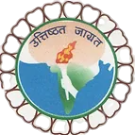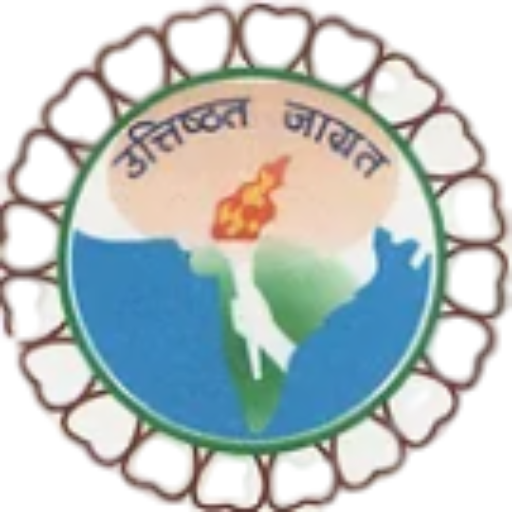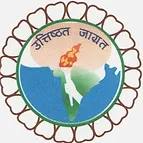Health & Nutrition
RJS organized a Conference on ‘Ayurveda Panorama’ on 27 October 2014 at New Delhi & a Round Table on ‘Ayushman Bharat Health Insurance’ on 21st April 2018 at New Delhi & a Round Table on ‘Health Education and Employment’ on 23rd June 2019 at New Delhi
Nutrition is about eating a healthy and balanced diet. Food and drink provide the energy and nutrients you need to be healthy. Understanding these nutrition terms may make it easier for you to make better food choices.
Nutrition is a critical part of health and development. Better nutrition is related to improved infant, child and maternal health, stronger immune systems, safer pregnancy and childbirth, lower risk of non-communicable diseases (such as diabetes and cardiovascular disease), and longevity.
Nutrition is a basic human need and a prerequisite for healthy life. A proper diet is essential from very early age of life for growth, development and active life. Nutrition is the science that deals with all the various factors of which food is composed and the way in which proper nourishment is brought about.
The average nutritional requirements of groups of people are fixed and depend on such measurable characteristics such as age, sex, height, weight, degree of activity and rate of growth.
Nutrition is the study of how food and drink affects our bodies with special regard to the essential nutrients necessary to support human health. It looks at the physiological and biochemical processes involved in nourishment and how substances in food provide energy or are converted into body tissues. These nutrients, which are the source of energy for our bodies, are classed as: carbohydrates, fats, fibre, minerals, proteins, vitamins and water. Good nutrition means obtaining the right amount of nutrients from healthy foods in the right combinations. An important part of the study of nutrition is looking at diseases that can result from malnutrition and the role that food plays in the development of chronic disease.
Ayurveda is one of the oldest healing sciences of the planet that practices holistic principles primarily focused on personalized health. Ayurvedic knowledge stems from the ancient Vedic culture and was taught for many thousands of years in an oral tradition from accomplished masters to their disciples. Some of this knowledge was set to print a few thousand years ago and became a partially documented long-tested age-old intellectual property of India in the form of traditional knowledge.
Ayurveda Panorama the Tridosha theory, which is the cornerstone of Ayurvedic physiology, governs all the functions of human body and mind. Tridosha are responsible in determining one’s Prakriti and their functional status may vary in both gender of different Prakriti.
According to Ayurveda, the traditional system of healthcare of Indian origin, Agni is the factor responsible for digestion and metabolism. Four functional states (Agnibala) of Agni have been recognized: regular, irregular, intense, and weak.
Ayushman Bharat Health Insurance Scheme, the beneficiaries are entitled to receive coverage of up to Rs. 5 Lakh each year in order to avail healthcare services in any form be it primary, secondary, or tertiary. Ayushman Bharat Health Insurance is a trusted insurance policy that is provided under the Indian government schemes.
In India, rather than focusing on strengthening essential primary, secondary, and tertiary healthcare in the public system, a shift toward an insurance-based system has been promoted. Chronic underfunding of India’s public health sector compared to private sector, and the liberalization of the market for private health insurance by the Indian government in the late 1990s resulted in increased health disparities, as private health insurance is only affordable for higher class, richer communities. In the mid-2000s, government-funded health insurance emerged as a new type of healthcare financing, helping individuals prevent catastrophic out-of-pocket health expenditures. Through this model, the state would pay premiums to private insurers that would allow eligible individuals to receive free treatment at any public or private institution that has joined the PMJAY scheme. The Indian government recognized that individual out-of-pocket expenditures were pushing people into poverty and treatment in government hospitals could not protect people against catastrophic health expenditures. The alternative of government-funded health insurance allows poorer individuals to still be able to access private health care without the extra expenses.
You can conveniently apply for your Ayushman card using your mobile phone from the comfort of your home. This streamlined process eliminates the need for physical visits, ensuring accessibility and ease of registration for healthcare benefits.
The revenue of government hospitals has increased due to the Ayushman scheme, patients are receiving better facilities. Previously patients hesitant to visit government hospitals due to the lack of healthcare amenities, people now flock to these hospitals as they trust them for treatment under the Ayushman scheme.
Health Education and Employment The transition from school to work can have relevance throughout a person’s life. Whether this transition occurs after high school or after college, it establishes a direction for all subsequent work experiences. It also places a focus on schools and colleges as the last major institutions that group a large number of people together in one place, which provides an opportunity for prevention and intervention efforts. Two speakers examined schools and universities in this context—one focusing on several alternate pathways from school to work, and the other on the health and safety of the college population.
Health education is a profession of educating people about health. Areas within this profession encompass environmental health, physical health, social health, emotional health, intellectual health, and spiritual health, as well as sexual and reproductive health education.


